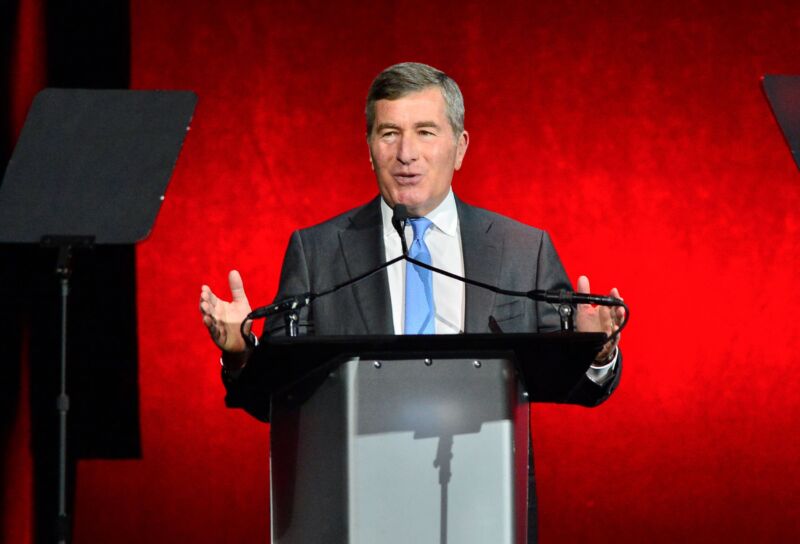
Getty Images | Jerod Harris
Motion Picture Association CEO Charles Rivkin yesterday said his group plans a major push to impose a site-blocking law in the US. The MPA will “work with members of Congress” to require Internet service providers to block piracy websites, he said during a “state of the industry” address at CinemaCon 2024 in Las Vegas, a convention for movie theater owners.
“This danger [of piracy] continues to evolve, and so must our strategy to defeat it,” Rivkin said. “So today, here with you at CinemaCon, I’m announcing the next major phase of this effort: the MPA is going to work with members of Congress to enact judicial site-blocking legislation here in the United States.”
A site-blocking law would let copyright owners “request, in court, that Internet service providers block access to websites dedicated to sharing illegal, stolen content,” he said. Rivkin claimed that in the US, piracy “steals hundreds of thousands of jobs from workers and tens of billions of dollars from our economy, including more than one billion in theatrical ticket sales.”
He also told the audience that pirate-site operators “aren’t teenagers playing an elaborate prank. The perpetrators are real-life mobsters, organized crime syndicates—many of whom engage in child pornography, prostitution, drug trafficking, and other societal ills. They operate websites that draw in millions of unsuspecting viewers whose personal data can then fall prey to malware and hackers.”
Rivkin said the industry is already “collaborating with local law enforcement authorities and global cybersecurity experts to identify and investigate illegal piracy operations,” but that this alone isn’t enough—a site-blocking law is also needed, in the MPA’s view.
Lawful content would be blocked, group warns
Consumer advocacy group Public Knowledge urged Congress to reject the MPA push, saying that a site-blocking law would threaten the open Internet. “With today’s announcement, the MPA has made its intentions crystal clear: It wants to give itself and its members the power to force any Internet infrastructure provider, up to and including the broadband providers that service your home, to cut off access to websites on their say-so alone,” said Meredith Rose, the group’s senior policy counsel.
The MPA’s latest push for a site-blocking law comes about two weeks before a Federal Communications Commission vote to restore net neutrality rules that prohibit ISPs from blocking and throttling websites. The proposed net neutrality rules apply only to lawful content, but opponents of site-blocking legislation fear a blocking law would undermine the goals of net neutrality by compelling ISPs to block both lawful and unlawful content.
Rose said the MPA’s requested law would be similar to the proposed Stop Online Piracy Act (SOPA) that was shelved after major protests over a decade ago.
“Nothing has changed since then—not the infrastructure of the Internet that made this unworkable, not the lack of consultation with technologists, and not the back-room dealmaking—except for the brazenness of the industries seeking it. And contrary to MPA’s stance, site-blocking does not ‘work’—it results in significant over-blocking of lawful content,” Rose said.
